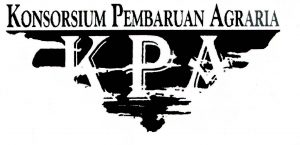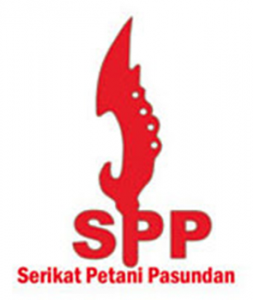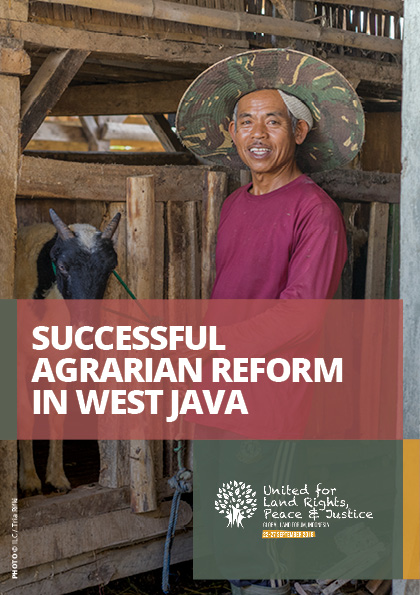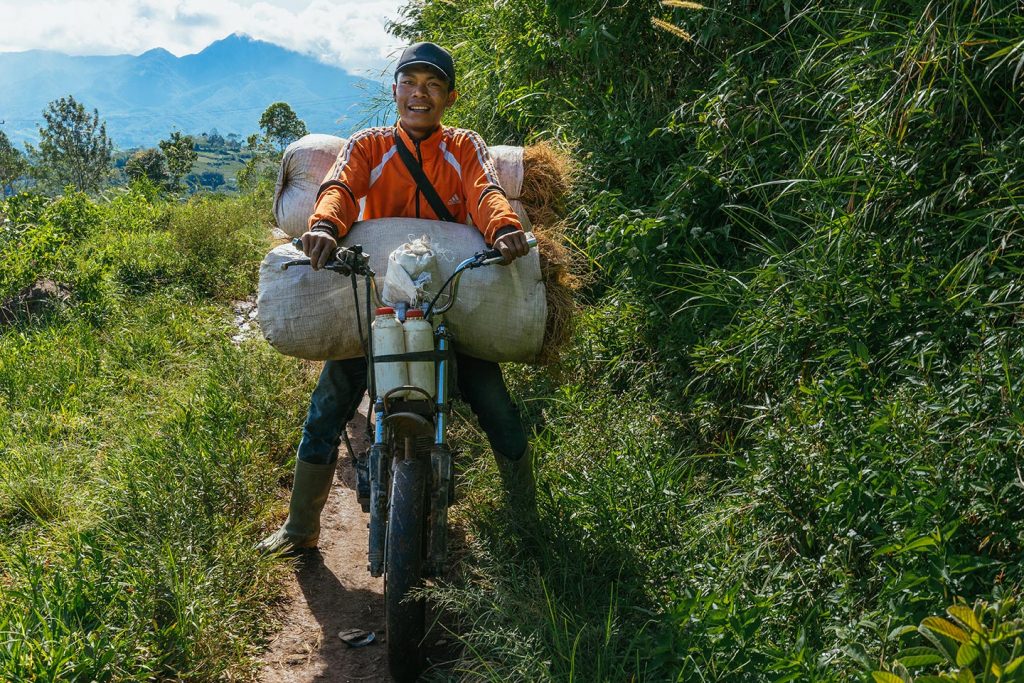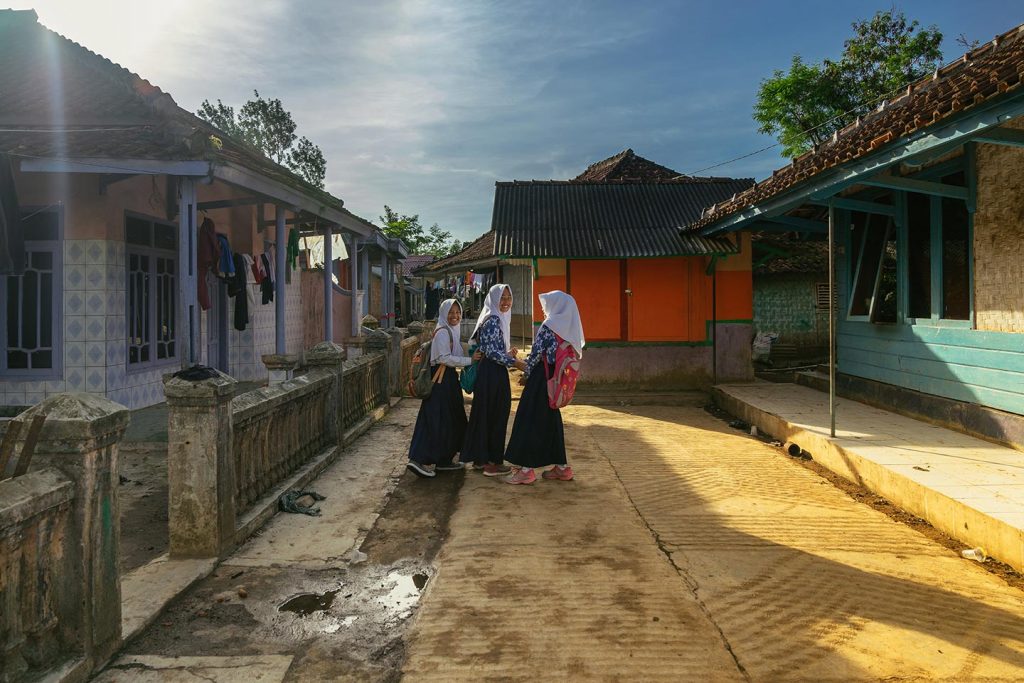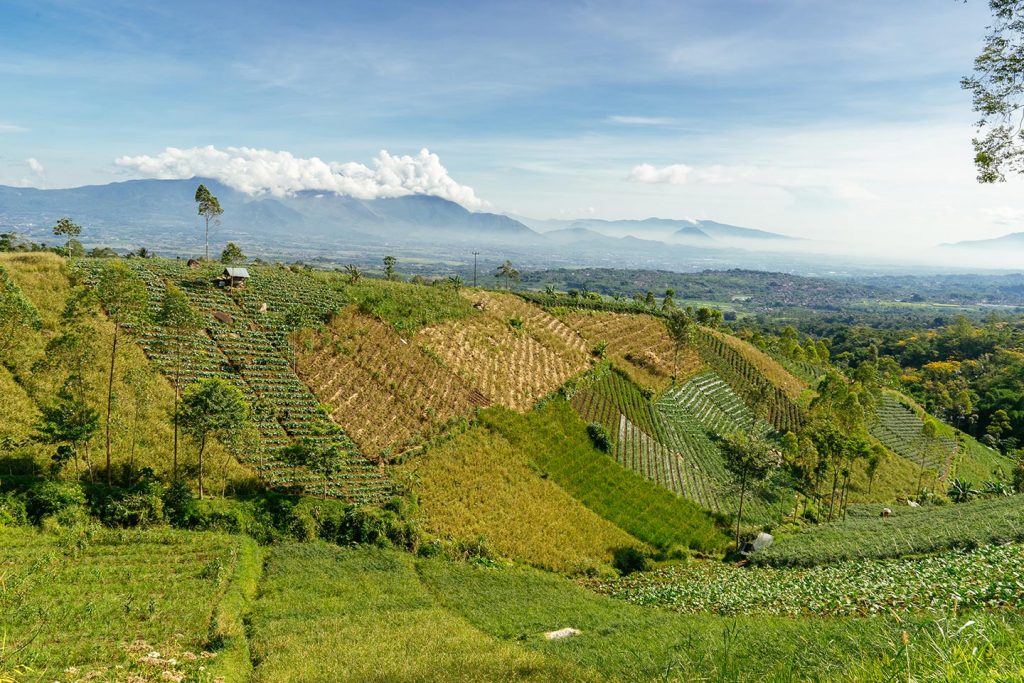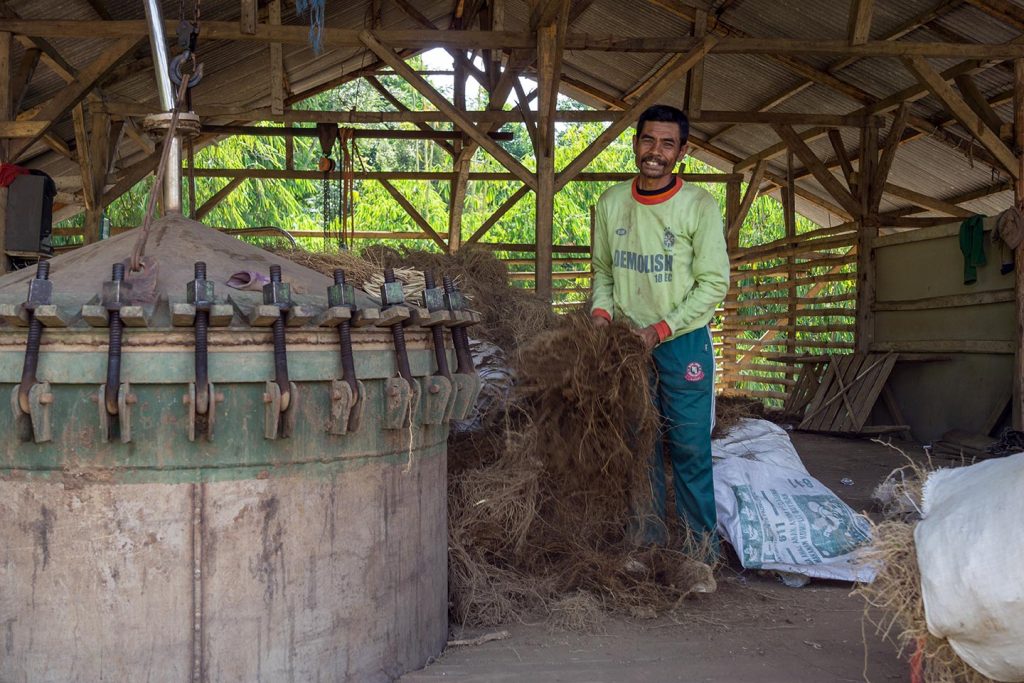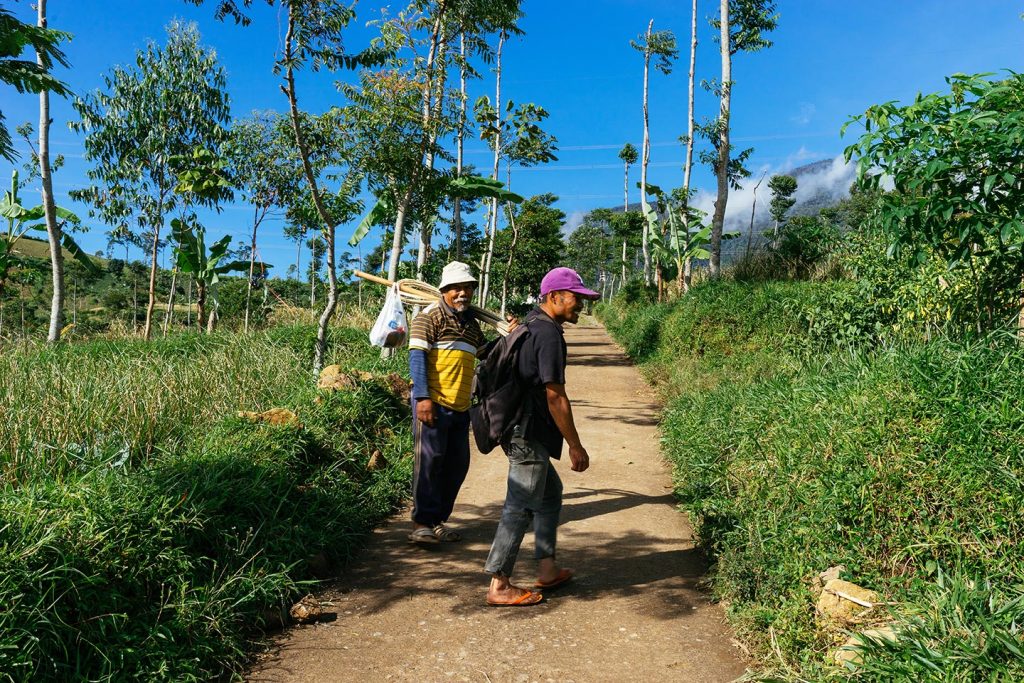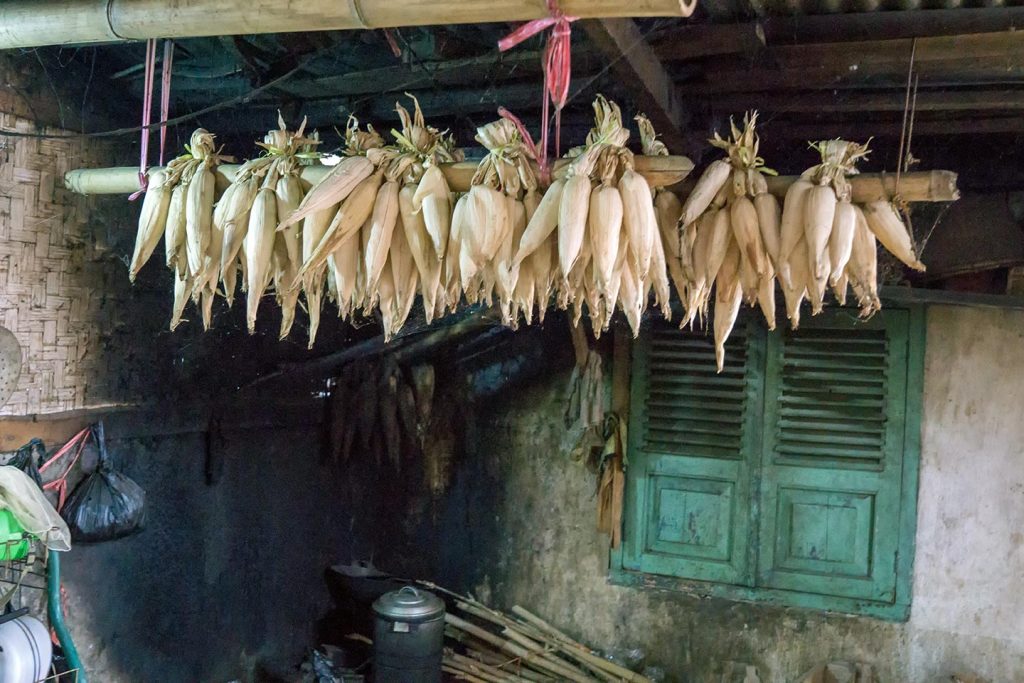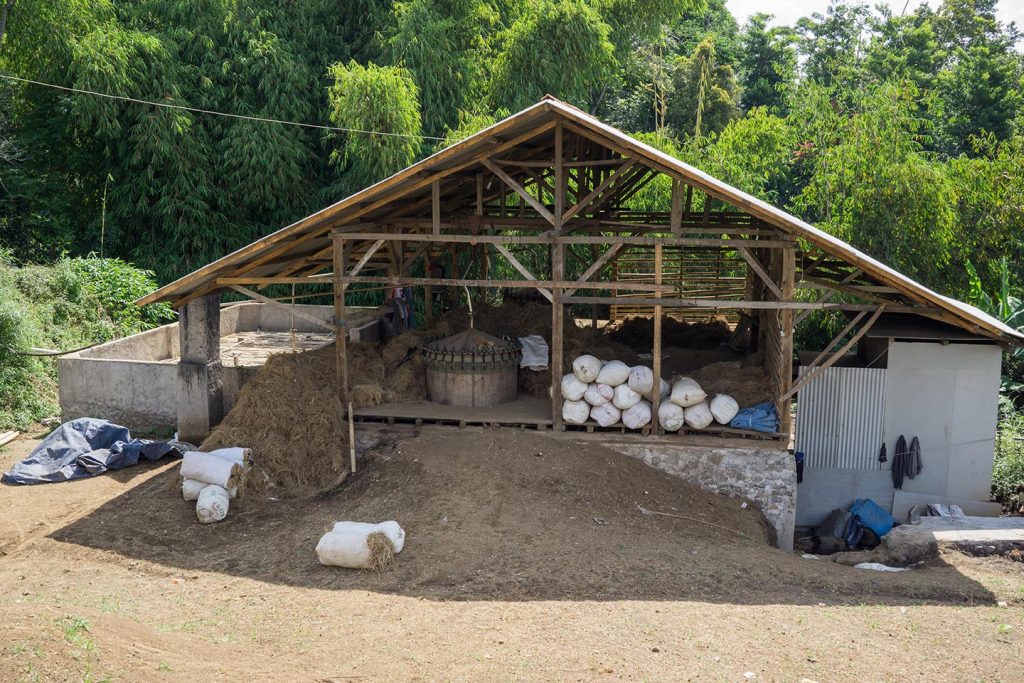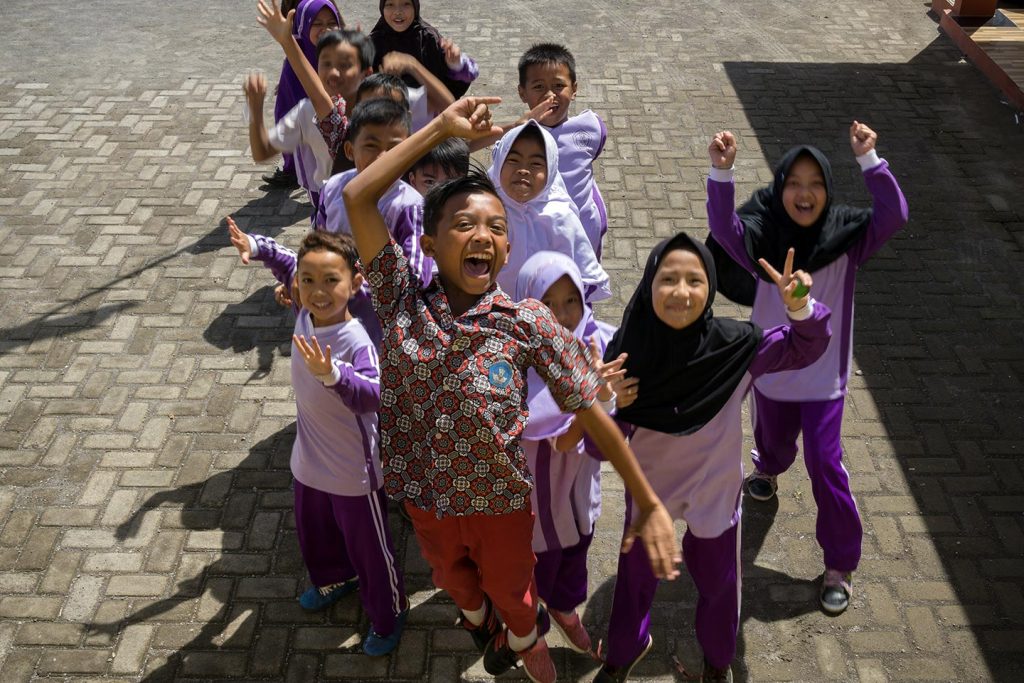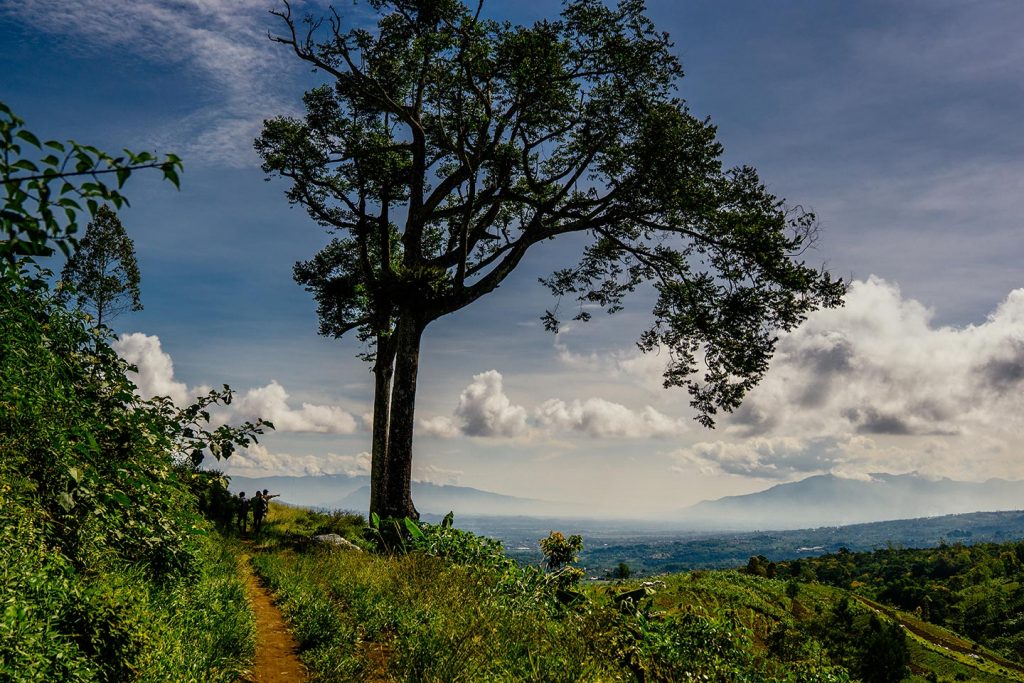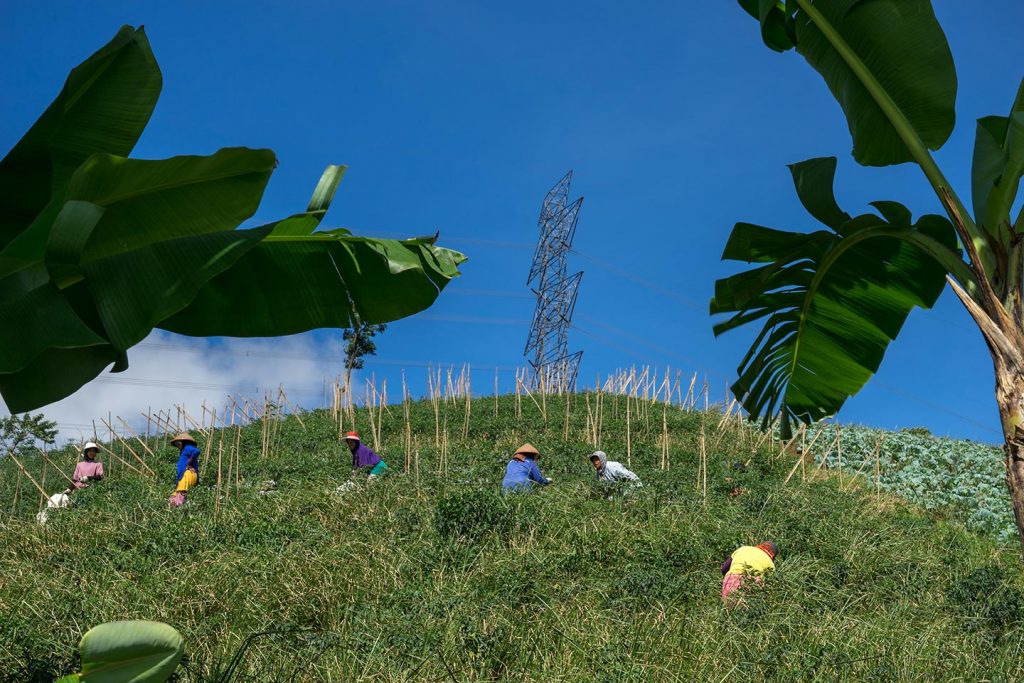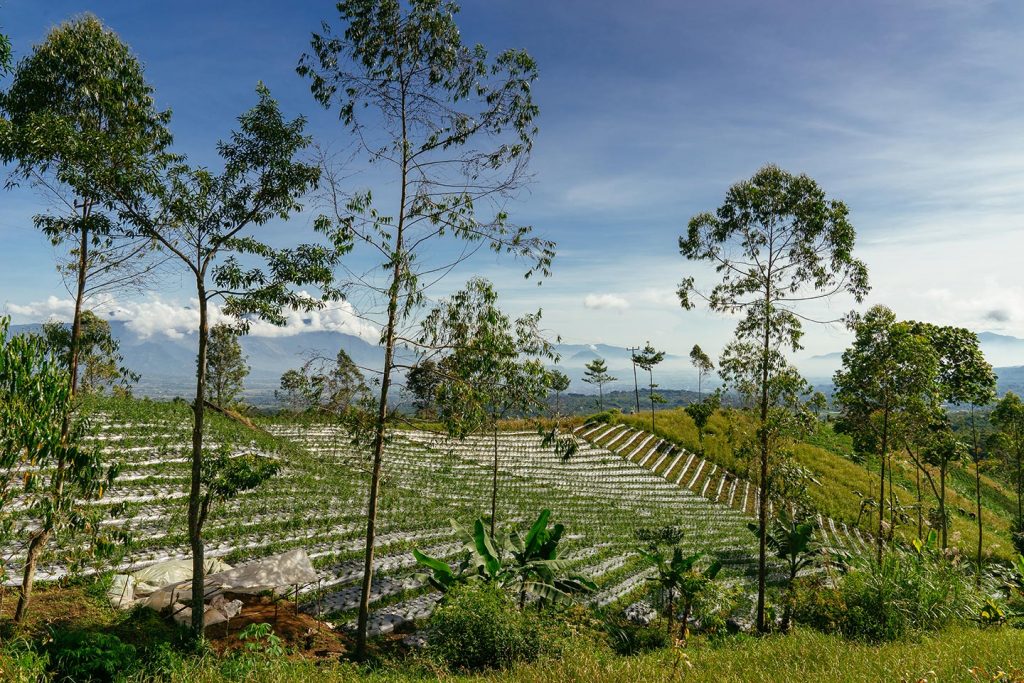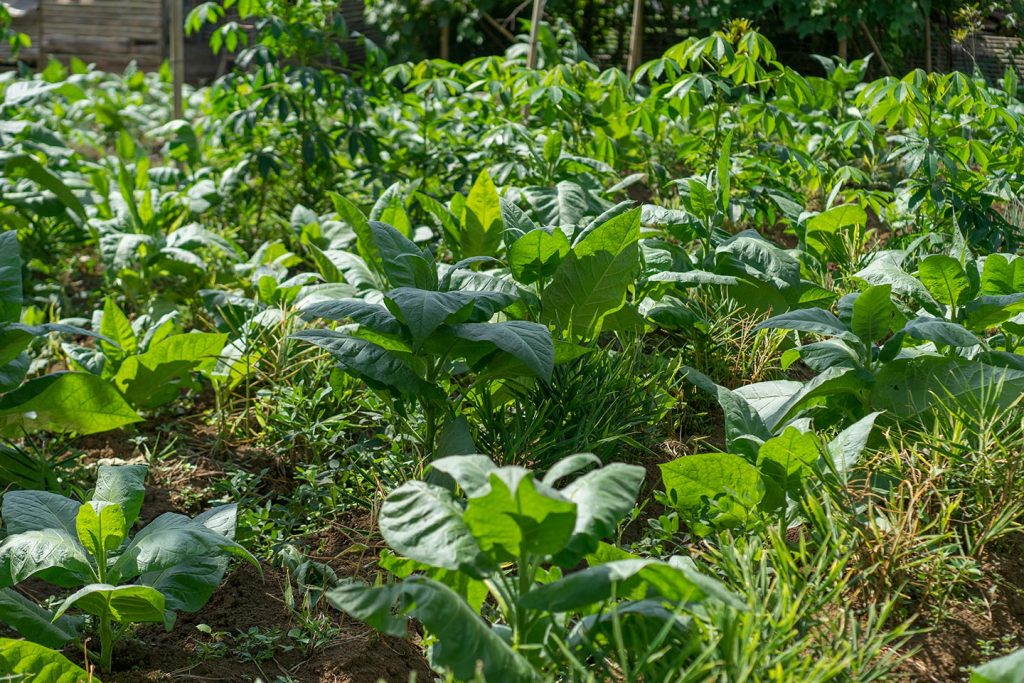GLF themes: Agrarian reform
Sub-topics: Land reclamation, farmers’ organisations, traditional farming, women, youth, collective farming, cooperatives
TRAVEL AND LOGISTICS:
Participants will travel by minibus to Tanjung Karang Village (4 hours). Participants will sleep in local residents’ houses, which are equipped with indoor cold-water bathrooms and squat toilets. Food generally consists of rice with salted preserved fish, tofu/tempe, vegetables, and chilli sauce. Participants are advised to wear canvas shoes or sneakers and bring a jumper or jacket; the village gets cold at night (15-20 degrees Celsius).
WHAT TO BRING
Sunscreen/sun protection, mosquito repellent, motion sickness medicine, refillable water bottle, tissues/toilet paper, towel, soap, non-slip walking shoes/hiking boots, sandals/flip flops.
BACKGROUND
Fights frequently broke out between farmers, PERHUTANI, and the police between 2000 and 2003. As a consequence, nine residents were arrested by the police – three were found guilty, while the remaining six were held for two weeks at the local police office.
Since 2003, the farmers have reclaimed their land, and, through the Pasundan Farmers’ Union (SPP), have transformed the land struggle into a political and village development movement. SPP members are now sitting in important roles in the village-level government, and income and overall welfare have increased through the establishment of women’s organisations, schools, mosques, road infrastructure, clean water supply system, and collectively-run swimming pools for tourists.
SPP has developed a village development blue print in line with the principles of agrarian reform. This can be seen in how they have allocated land for different uses: the 400ha of land that was reclaimed has been divided into crop land (320ha), paddy fields (30ha), ecological reserves (30ha), and housing (20ha). Each of the 450 families in Tanjung Karang village now have at least 0.5ha of land for cropping; this has made their lives more comfortable and secure, reflected in their increasing quality of life.
PARTICIPANTS
WILL LEARN
ABOUT...
- Community-initiated land reform;
- Community strategies for protecting their land rights;
- Village development based on true agrarian reform principles;
- The roles of women and youth in farmers’ organisations.
IN
TANJUNGKARANG
VILLAGE
PARTICIPANTS
WILL...
- Participate in discussions on land reform implementation that
focuses on community-led initiatives in the struggle to retain
their land rights, and village development that actively involves
women and youths; - Share successful land rights campaign strategies from different
countries; - Participate in discussions on relationships between village-level
governments and the national government in pursuing village
development based on true agrarian reform; - Visit important local sites, such as collective farms, fragrant herb
farms, schools, women’s groups, and collectively-run swimming
pools that provide the community with income.
